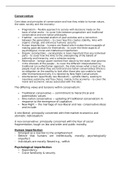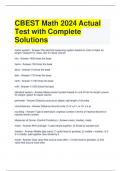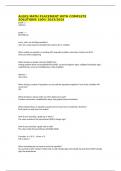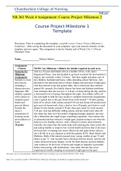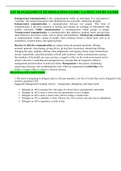Conservatism
Core ideas and principles of conservatism and how they relate to human nature,
the state, society and the economy:
Pragmatism – flexible approach to society with decisions made on the
basis of what works – to cover links between pragmatism and traditional
conservative and one-nation philosophy
Tradition – accumulated wisdom of past societies and a connection
between the generations – to cover how this creates stability, links with
organic change, and enhances humans’ security
Human imperfection – humans are flawed which makes them incapable of
making good decisions for themselves – to cover the three aspects of
psychological, moral and intellectual imperfection
Organic society/state – society/state is more important than any individual
parts – to cover how this links to the underpinning of the beliefs of
authority and hierarchy, and a cohesive society
Paternalism – benign power exerted from above by the state, that governs
in the interests of the people – to cover the different interpretations by
traditional (an authoritarian approach, the state knows what is best so the
people must do what they are told) and one-nation conservatives (there is
an obligation on the wealthy to look after those who are unable to look
after themselves)and why it is rejected by New Right Conservatives
Libertarianism (specifically neo-liberalism) – upholds liberty, seeking to
maximise autonomy and free choice, mainly in the economy – to cover the
moral and economic values associated with this idea.
The differing views and tensions within conservatism:
Traditional conservative − commitment to hierarchical and
paternalistic values
One-nation conservative − updating of traditional conservatism in
response to the emergence of capitalism
New Right − the marriage of neo-liberal and neo- conservative ideas
and include:
O neo-liberal: principally concerned with free-market economics and
atomistic individualism
O neo-conservative: principally concerned with the fear of social
fragmentation, tough on law and order and public morality.
Human imperfection
- Emerged as a reaction to the enlightenment
- Believe that humans are intellectually, morally, psychologically
imperfect
- Individuals are morally flawed e.g., selfish
Psychological imperfection
• Dependency
• Crave familiarity & security
, • Like to ‘know their place’
• Social order and hierarchy should be prioritised over individual
freedom and choice
Moral imperfection
• Selfish
• Greedy
• Anti-social/criminal behaviour inherent not due to disadvantage
• Tough law and order, severe punishments and deterrents
Intellectual
• Limited intellectual capacity
• Limited reasoning
• Cannot make sense of complex world
• Reject overarching ideologies and dogmatism. Instead, tradition and
pragmatism
Immutable – It’s a constant, cannot change. Conservatives believe
human nature is immutable – e.g., a bad person will always be a bad
person. People’s behaviour is fixed showing why they want to conserve
their traditions and have society remain. Conservatives are for
punishment rather than rehabilitation.
Dogmatism - Sticking to a firm ideological belief whatever the
circumstances.
Pragmatism - Flexible, focusing on what works based on experience,
adapts to circumstances
‘The wise conservative travels light’ Gilmour – only using
recourses from current circumstance and adapts, no baggage from
previous situation, not carrying round heavy dogma from other
beliefs and ideologies, only using what affects you now.
‘A state without the means of some change is without the
means of its conservation’ Burke – without change you are
dogmatic, whole belief system won’t survive as something will come
along and wipe it out. Pragmatic sees what works and what doesn’t
and adapts to this idea, therefore we will survive. Conserve what
works however adapt and be pragmatic if it has proven not to work.
Tradition = currently considered to still work but many things over
centuries have been let go as they don’t work.
Empirical evidence – the theory that all knowledge is based on experience
and not based on abstract theory
Why might conservatives like the tradition of the royal wedding?
1. Hierarchy – weak-willed humans know their place
2. Social order – if you know your place, you won’t rebel
3. It’s worked successfully for centuries – pragmatic
4. It has historically been seen to be divinely ordained – religious
element
5. Provides identity, and therefore security
Organic society
Core ideas and principles of conservatism and how they relate to human nature,
the state, society and the economy:
Pragmatism – flexible approach to society with decisions made on the
basis of what works – to cover links between pragmatism and traditional
conservative and one-nation philosophy
Tradition – accumulated wisdom of past societies and a connection
between the generations – to cover how this creates stability, links with
organic change, and enhances humans’ security
Human imperfection – humans are flawed which makes them incapable of
making good decisions for themselves – to cover the three aspects of
psychological, moral and intellectual imperfection
Organic society/state – society/state is more important than any individual
parts – to cover how this links to the underpinning of the beliefs of
authority and hierarchy, and a cohesive society
Paternalism – benign power exerted from above by the state, that governs
in the interests of the people – to cover the different interpretations by
traditional (an authoritarian approach, the state knows what is best so the
people must do what they are told) and one-nation conservatives (there is
an obligation on the wealthy to look after those who are unable to look
after themselves)and why it is rejected by New Right Conservatives
Libertarianism (specifically neo-liberalism) – upholds liberty, seeking to
maximise autonomy and free choice, mainly in the economy – to cover the
moral and economic values associated with this idea.
The differing views and tensions within conservatism:
Traditional conservative − commitment to hierarchical and
paternalistic values
One-nation conservative − updating of traditional conservatism in
response to the emergence of capitalism
New Right − the marriage of neo-liberal and neo- conservative ideas
and include:
O neo-liberal: principally concerned with free-market economics and
atomistic individualism
O neo-conservative: principally concerned with the fear of social
fragmentation, tough on law and order and public morality.
Human imperfection
- Emerged as a reaction to the enlightenment
- Believe that humans are intellectually, morally, psychologically
imperfect
- Individuals are morally flawed e.g., selfish
Psychological imperfection
• Dependency
• Crave familiarity & security
, • Like to ‘know their place’
• Social order and hierarchy should be prioritised over individual
freedom and choice
Moral imperfection
• Selfish
• Greedy
• Anti-social/criminal behaviour inherent not due to disadvantage
• Tough law and order, severe punishments and deterrents
Intellectual
• Limited intellectual capacity
• Limited reasoning
• Cannot make sense of complex world
• Reject overarching ideologies and dogmatism. Instead, tradition and
pragmatism
Immutable – It’s a constant, cannot change. Conservatives believe
human nature is immutable – e.g., a bad person will always be a bad
person. People’s behaviour is fixed showing why they want to conserve
their traditions and have society remain. Conservatives are for
punishment rather than rehabilitation.
Dogmatism - Sticking to a firm ideological belief whatever the
circumstances.
Pragmatism - Flexible, focusing on what works based on experience,
adapts to circumstances
‘The wise conservative travels light’ Gilmour – only using
recourses from current circumstance and adapts, no baggage from
previous situation, not carrying round heavy dogma from other
beliefs and ideologies, only using what affects you now.
‘A state without the means of some change is without the
means of its conservation’ Burke – without change you are
dogmatic, whole belief system won’t survive as something will come
along and wipe it out. Pragmatic sees what works and what doesn’t
and adapts to this idea, therefore we will survive. Conserve what
works however adapt and be pragmatic if it has proven not to work.
Tradition = currently considered to still work but many things over
centuries have been let go as they don’t work.
Empirical evidence – the theory that all knowledge is based on experience
and not based on abstract theory
Why might conservatives like the tradition of the royal wedding?
1. Hierarchy – weak-willed humans know their place
2. Social order – if you know your place, you won’t rebel
3. It’s worked successfully for centuries – pragmatic
4. It has historically been seen to be divinely ordained – religious
element
5. Provides identity, and therefore security
Organic society

